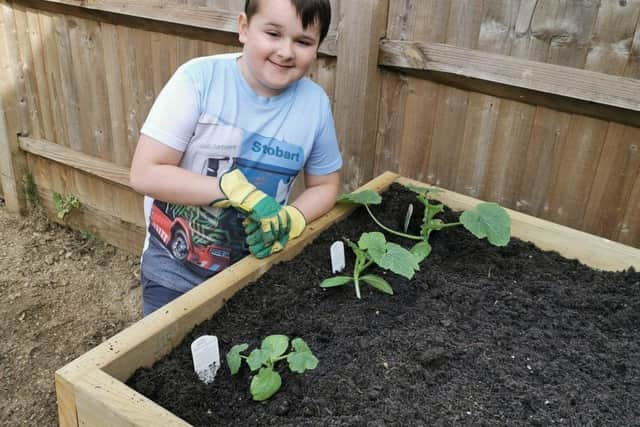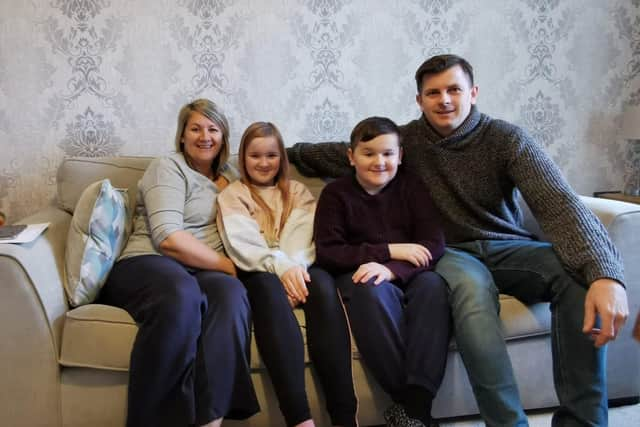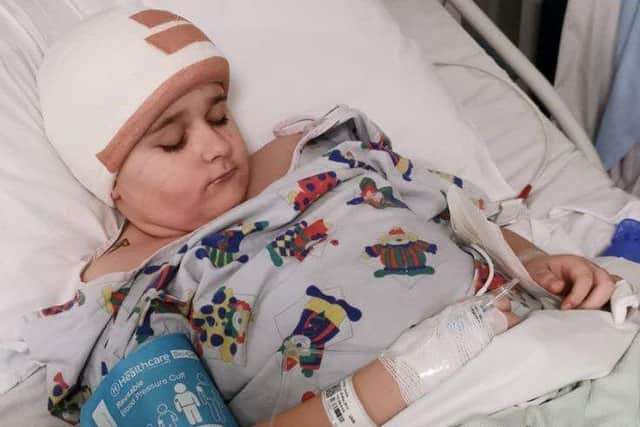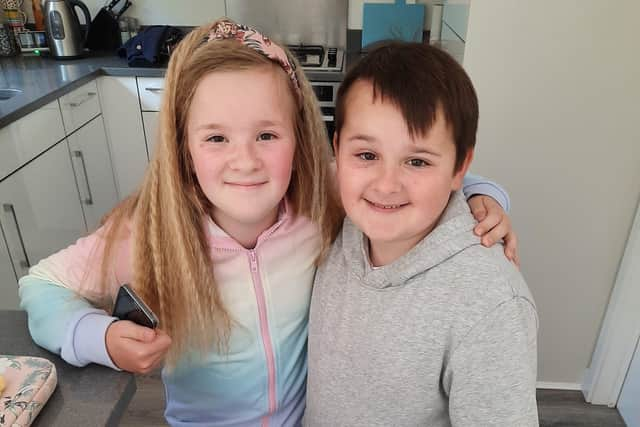Worthing boy with brain tumour takes on walking challenge for Brain Tumour Research to help find a cure
and live on Freeview channel 276
Charlie Clayton, a pupil at West Park CE Primary School, and his mum Stacy Clayton, a teaching assistant at the same school, are walking 10,000 steps a day in February for Brain Tumour Research.
Stacy said: “I’m doing this for this little man, my Charlie. He has a brain tumour and the more research they can do, the more treatment and support he will get. He has been amazing through it all.”
Advertisement
Hide AdAdvertisement
Hide AdCharlie was diagnosed with a craniopharyngioma brain tumour in March 2020 and was swiftly taken to Southampton Hospital for an operation to remove some of it. He then had proton beam radiotherapy in Manchester for six weeks, starting in September.


Charlie was able to spend Christmas with his family at home in Lobelia Drive, Durrington, and now he and twin sister Megan are being home-schooled during lockdown. Dad Chris Clayton, 39, is a regional manager with Hilti, a manufacturing company working with the construction industry, and he has been working from home during the pandemic.
Stacy explained the problems started with Charlie having headaches. They saw the GP and had his eyes checked to try to find the cause.
She said: “When the headaches became more frequent and he was off school for a few days vomiting as well, we rang 111 who suggested he got checked out at hospital for meningitis.
Advertisement
Hide AdAdvertisement
Hide Ad“A few days later, he started to feel bad again so Worthing Hospital decided to book him in for an MRI scan just to check nothing serious was wrong.


“Chris was with Charlie when he had the scan and I got a call from him at school to come over. We saw a doctor who told us they had found a mass in Charlie’s brain and he needed to be transferred to Southampton General.
“It was such a shock. We broke down and cried. All sorts of thoughts went through my head. Will Charlie need an operation? Will he survive? How are we going to tell Megan? Who will look after her?
“Charlie had a 3cm x 3cm tumour, which was very close to areas controlling his eyes and other functions, so we were told the likelihood was they wouldn’t be able to remove all of the tumour.”
Advertisement
Hide AdAdvertisement
Hide AdThe tumour was pressing on the part of Charlie’s brain that controls his hormones and near to the part linked to eyesight.


Stacy added: “After being given all the worst-case scenarios, it was such a massive relief to find Charlie awake, talking and able to recognise us, after five hours of surgery in his brain.”
The proton beam therapy at The Christie was designed to help shrink the tumour further.
Stacy said: “Charlie is still having headaches and gets tired very easily but we have been told that this is expected and should sort itself out in time. He will need to continue hormone replacement throughout his adolescence because he is not producing the hormone naturally and will have regular scans to monitor him.
Advertisement
Hide AdAdvertisement
Hide Ad“Between his surgery and having proton beam therapy, Charlie really got into gardening and growing vegetables – I think the runner beans were his favourite. He’s hoping to do some more gardening this year.


“But for now, Charlie and I are doing the 10,000 steps challenge. We’re having to walk round the well-lit streets where we live during the week because it’s getting dark by the time I get home from school but we ’ll probably take walks along the beach at weekends.”
So far, Stacy and Charlie have raised £685, more than double their initial target of £300.
Brain tumours kill more children and adults under the age of 40 than any other cancer, yet historically just one of the national spend on cancer research has been allocated to this disease.
Advertisement
Hide AdAdvertisement
Hide AdCharlie Allsebrook, community development manager at Brain Tumour Research, said: “We are really sorry to learn of Charlie’s diagnosis and wish him all the best for the future. We are really grateful to him and Stacy for taking part in our 10,000 steps challenge and for helping to raise awareness.”
Brain Tumour Research funds sustainable research at dedicated centres in the UK. It also campaigns for the government and larger cancer charities to invest more in research into brain tumours. Find Stacy’s 10,000 steps a day in February challenge on Facebook to make a donation.
Last year, Charlie raised thousands of pounds for WellChild Resilience Fund, which helps the charity look after seriously ill children and their families during the Covid-19 outbreak. While he was recovering from surgery, he asked his dad to set up a fundraising page and more than £3,000 was donated.